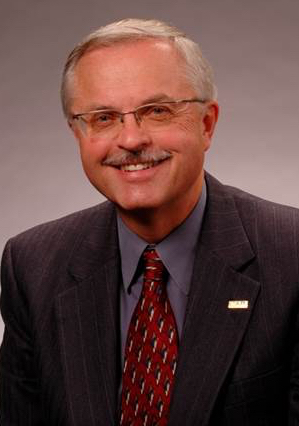Those who can, do – and get their hands ‘dirty’ in the process
I have a friend, Jay Hook, who used to lead the Masco Corp.’s automotive operations. Jay has a master’s degree in engineering, but before he joined the auto industry, he played professional baseball, pitching for the Cincinnati Reds and the New York Mets.
The legendary baseball manager Casey Stengel was with the Mets when Jay was on the team. One day before Jay was to start a game, one of his teammates asked, “Why does a curve ball curve?” To an engineer the explanation is quite simple, and Jay explained, “It is due to the Bernoulli effect, where when you put a spin on the ball, the velocity on opposite sides is different, leading to a pressure differential which, when integrated over the projected area of the ball, creates a force that causes the ball to curve.”
Stengel overheard the discussion. Jay started the game, but struggled to get the other team out and was replaced by a relief pitcher. Back in the clubhouse after the game, Stengel came up to Jay and said, “Too bad you can’t do what you know.”
This issue is with us today in everything we do. Academic knowledge is great but you really have “to do what you know” if you are going to create value.
In Michigan, at a recent summit on jobs organized by the governor, the No. 1 shortage of talent in Michigan was skilled trades and technicians. In second place were engineers with mechanical/electrical abilities. In both categories, workers have to “get their hands dirty,” which doesn’t necessarily mean in a literal sense, but rather, that you really must know how things work and understand the world of manufacturing.
Knowledge is important but is only a start; the application of that knowledge is what creates value. I saw this firsthand growing up in Detroit. I attended public schools and had hands-on courses like metal, machine and wood shop and drafting as well as the traditional academic courses of math, science and English. I went on to earn four degrees from the University of Michigan.
I spent summers on my grandparents’ farm in West Michigan. One thing I learned very early is that farming is a hands-on profession. You haven’t lived until you put a fork into accumulated straw and manure and smell something very special. When something broke on the farm, you didn’t run to the city to buy whatever broke; you fixed it yourself. This was a wonderful experience for me, and it doesn’t mean that everyone should have the opportunity to shovel manure, but it does suggest that getting your hands dirty is not such a bad thing and in fact is a form of application learning.
For some reason, we have moved away from the idea that “getting your hands dirty” is a good thing. Many young people and their parents hope for a job on Wall Street or in some other “clean” profession, when the needs are so great in one of the most important parts of our economy. An auto manufacturer today has an economic multiplier of about 10, i.e. for every job at an auto company, nine other jobs are tied to it through suppliers or spinoff jobs in other businesses. The Wall Street job has a multiplier of about two; our economy would be in tough shape if all we had were Wall Street jobs.
We are seeing some progress, but we have much to do.
One thing everyone should understand is that the idea of a manufacturing facility filled with smoke and noise is very outdated. Manufacturing today is high tech and productive. Unfortunately most don’t have that picture.
At the University of Michigan mechanical engineering department, every student every year gets their hands dirty. It happens in courses where they design, build, test and present and in a number of very popular student projects like the Solar Car, Formula SAE or the Mini-Baja team projects. Of course this is done using the most contemporary and advanced technologies.
One of the most important things we can do is change the image and spell out the amazing opportunities in modern manufacturing in order to attract more young people to an education that will mesh with the explosion of needs for high-tech, but hands-on, jobs.
See what new members are saying about why they donated to Bridge Michigan:
- “In order for this information to be accurate and unbiased it must be underwritten by its readers, not by special interests.” - Larry S.
- “Not many other media sources report on the topics Bridge does.” - Susan B.
- “Your journalism is outstanding and rare these days.” - Mark S.
If you want to ensure the future of nonpartisan, nonprofit Michigan journalism, please become a member today. You, too, will be asked why you donated and maybe we'll feature your quote next time!


 David E. Cole is chairman emeritus of the Center for Automotive Research, and founder and chairman of Autoharvest.org.
David E. Cole is chairman emeritus of the Center for Automotive Research, and founder and chairman of Autoharvest.org.